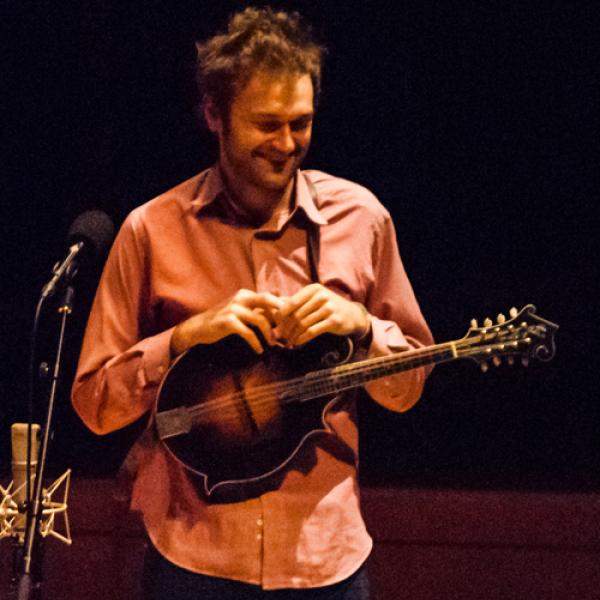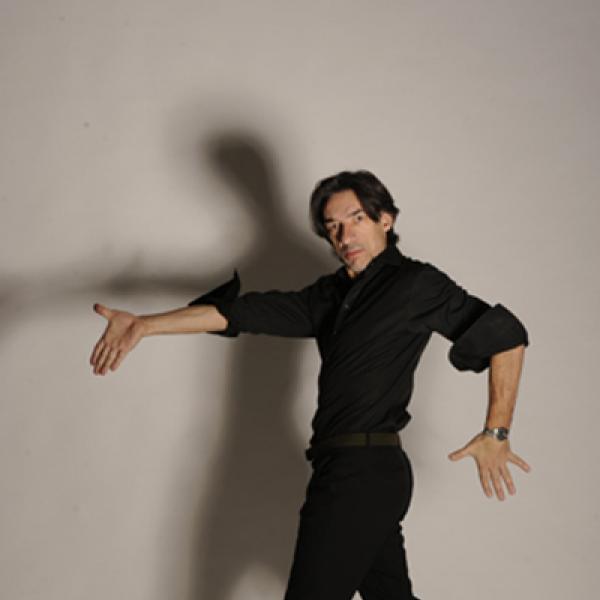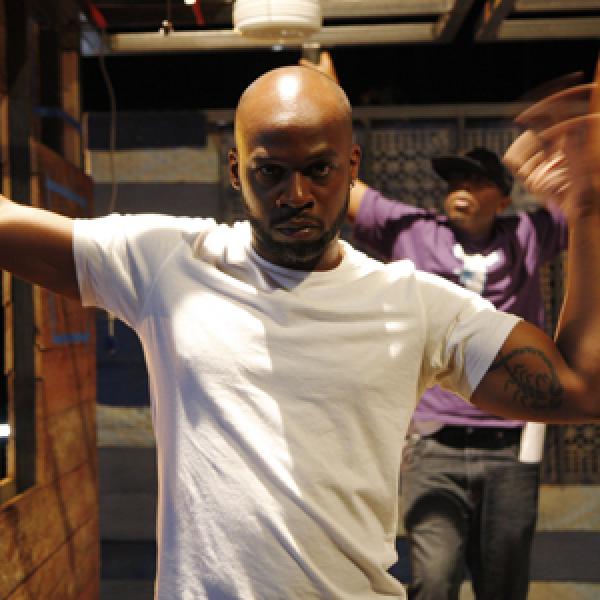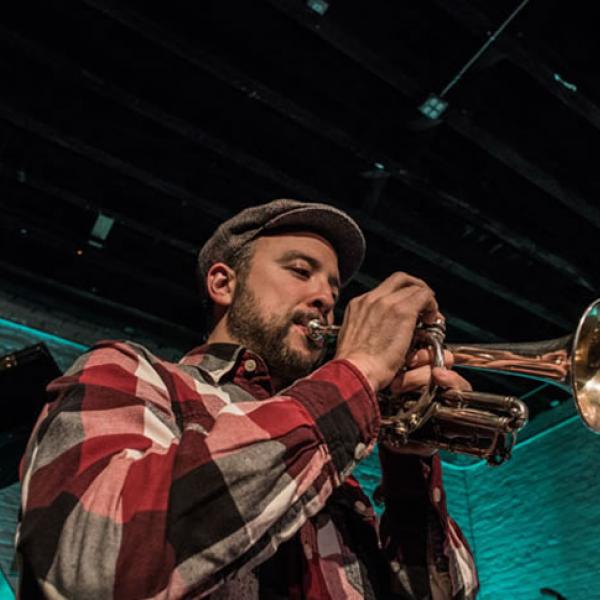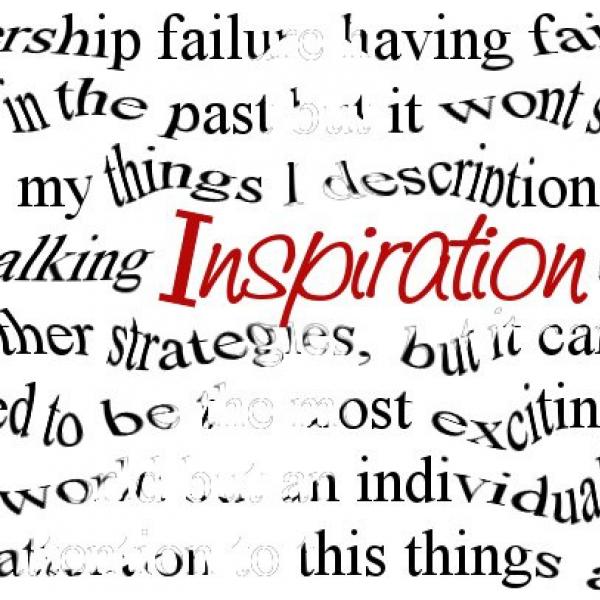Sherman Alexie
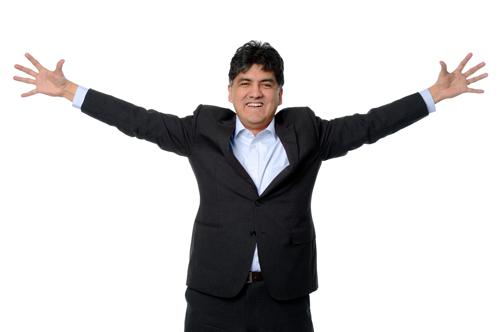
Sherman Alexie. Photo by Will Austin
According to poet, author, and filmmaker Sherman Alexie, “A lot of Native literature is really foo-foo nature crap, and it’s written by Indians who don’t even live that way.” Alexie’s own work, however, stays far away from the mythologized, spiritual stereotypes surrounding Native Americans, and focuses instead on the realities he grew up with on the Spokane Indian Reservation in Wellpinit, Washington, which ran thick with poverty, alcoholism, and hopelessness. In Alexie’s hands however, these relentless heartbreaks are transformed into lyrical, moving portraits of contemporary Native life, which have garnered the writer a PEN/Faulkner Award for Fiction, a PEN/Malamud Award for Short Fiction, a National Book Award for Young People’s Literature, and an NEA Literature Fellowship. We recently spoke with Alexie by phone to hear his thoughts on inspiration, and the role it plays in his creative practice.
What is Inspiration?
Everything gets written down, everything gets remembered, everything gets catalogued. I don’t have that immediate inspiration very often. It is having a moment, a phrase, a line of dialogue and then writing it down and hanging on to it. The inspiration is later when two of those things collide. Then you have to run to a computer, or run to a notebook. That’s when it gets exciting, when two things come together that way…. I guess you’d say inspiration is something that makes me want to write it down. It’s something that makes you want to ask more questions about it.
Where Inspiration Lingers
[Inspiration] is everywhere all of the time. I don’t turn it off. I was in New York a few years back and I was walking back to my hotel late night after a literary party, and I saw a 24-hour nail salon. I thought, “Wow, only in New York could you actually have a 24-hour nail salon.” As I was walking by, three very lovely drag queens walked into the salon. It was like three in the morning, and they were done up. It was such an amazing moment. I couldn’t figure out why they looked so good. Are they on their way to somewhere? Are they on their way back from somewhere? I ended up writing a short story about a 24-hour nail salon in Manhattan. So I can be just as influenced by 3 a.m. drag queens in New York City as I can by a powwow in Oklahoma.
I write about basketball and hot dogs and blue-collar jobs. It’s plainspoken stuff. I’m not very interested in the ornate. There’s a new house built in our neighborhood and it’s this modernist masterpiece-looking thing. It does nothing for me. But on the other hand, I wrote a short story because there was once a mattress in my neighborhood that somebody had tossed, and it sat on the curb forever. That abandoned mattress is infinitely more interesting than that house.
I was that mattress growing up. I’m a rez Indian. Every rez Indian is an abandoned mattress. When you start at the bottom you’re looking at everything above you. When you’re a prey animal, you study the horizon. Everything was a potential predator for me.
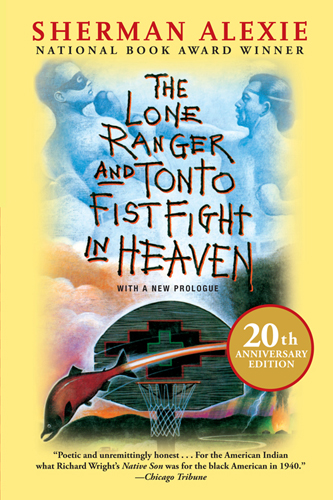
Facing a Creative Crisis
After a period of working in Hollywood after [my feature film] Smoke Signals came out, and being in Hollywood and working on screenplays where everybody has an opinion and everybody’s opinion is more valuable than yours—that really bled over into my fiction writing and poetry writing. I got blocked for almost a year. I thought I was done. [It was] terrifying. The thing is there is no real job that I could ever have. I’ve been fired or asked to leave with every regular job I ever had, from summer jobs on up. Insubordination.
[I moved past it when] I was visiting a friend, a sculptor, Adrian Arleo, who’s married to the writer David James Duncan. My wife and I went up to her studio and she showed us the stuff she was working on. She was doing these humans with animal body parts. There was one with a woman who had horses for arms, and a poem started instantly. In fact, I left them. I said, “I’m out of here. I’m going back to the hotel. You guys have fun—I’m leaving. I’m going to go write.” I wrote seven or eight poems that night about her sculpture. That busted it, broke it. So she saved me, her sculpture saved me.
Outsmarting a Lack of Inspiration
If I’m not feeling inspired, I’ll just grab a random book off the shelf and open it up. I have different shelves, and I pull it off my shelf of much beloved books and open it up randomly. I will transcribe that first paragraph I see. In fact, I’m just going to grab a random book off my shelf. What did I grab? Look at this, it’s The Mysteries of Pittsburgh [by Michael Chabon].
So random opening: “I decided to walk to the Weatherwoman House through the hot clear Monday morning. For some reason, many groups of men with tar-burning wagons were scattered across the rooftops of East Pittsburgh and the smell of tar made everything seem even hotter, more yellow, more intensely summer.”
So what I would do is I would type that and keep typing until some idea gets to me. So as I was reading that, I started thinking, you know, I don’t think I’ve ever written about hot tar. What I’m remembering is in high school in driver’s ed, I was in a car with some classmates and we were stopped by a road crew. There was the guy with one of those signs. He had stopped us, and I said, “Man, that must be a good job being the sign guy, you get a lot of money and you just stand there all day.” What I didn’t know was that one of my classmates there, her dad did that stuff. I didn’t mean to sound so judgmental, but it was. It really hurt her, and I didn’t learn about it until a couple of years later when we dated for a while. We were in the backseat of my car half-clothed when she told me about how much it had hurt her feelings. So that’s how I get inspired. I grab a sentence or two or even a paragraph from somebody else’s book, and then that will lead me into something else of my own. So Michael Chabon’s hot tar led me to breaking the heart of a high school girl.
With poetry, one of the things I’ll do is I’ll take a very formal poem, let’s say a villanelle from Elizabeth Bishop. I’ll take one of her repeating lines, or from a Frost poem, I’ll take all of the end rhymes. If it’s a sonnet, I’ll take those 14 end words and I’ll lay them out on the page, and then I’ll write to those end words. Those same words will be the end words of all of my poetry lines. Nobody’s ever noticed that. I’ve published lots of poems with end lines from other people’s poems. I have all sorts of hidden stuff like that in the poetry—nobody’s ever noticed. There are many, many anagram notes to friends.
Rethinking the Native-American Literary Tradition
I started college thinking I was going to become a pediatrician but couldn’t handle the actual body anatomy stuff of it. So I took a bunch of classes trying to figure out what to do. I took a poetry writing class and that was it.
[Adrian Louis] was my first experience of Native-American realism in literature. He’s the Hemingway of the Indian literary world, just straight-up, macho realism. I didn’t know a rez Indian’s life was important enough to write about, but also to be written about in such a direct and honest way.
The Indian literary world is so filled with the same kind of down-and-out Indians; I write about them too. Giving an Indian a white-collar job in a story creates the inspiration. I guess that’s one of the lucky things for me: almost anything I do as a Native-American writer is the first time a Native-American writer has done that. We’ve got a much shorter history of literature to be dealing with. It’s pretty exciting. I’m lucky.
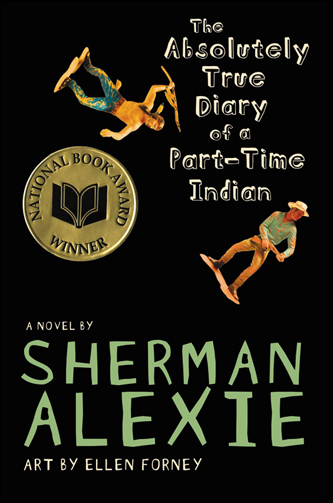
Inspiring Others
With my young adult novel [The Absolutely True Diary of a Part-Time Indian], I get a lot of young brown kids, young brown men who often say this is the first book they’ve ever loved, and often say it’s the only book they’ve ever finished. That is so intense for me. That’s a lot more important than influencing somebody to write a book. To actually be the first book that somebody has finished—you hope it’s the gateway to more. So that’s the group most close to me when I actually concentrate on who might be reading something I’m writing. I think about those poor brown boys—boys like I was.


